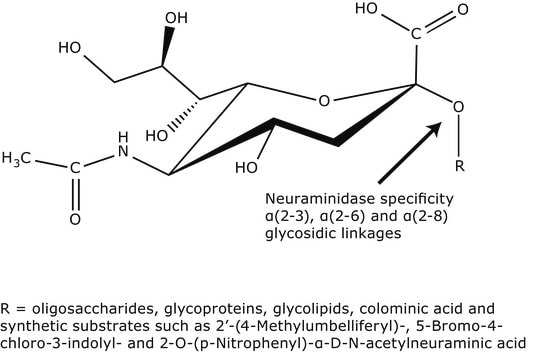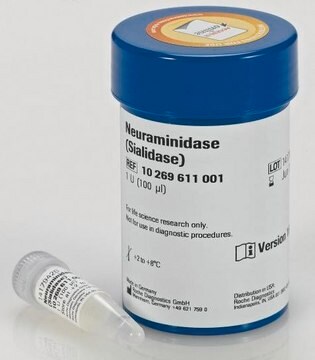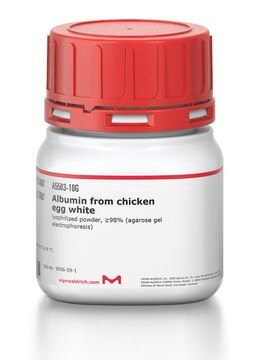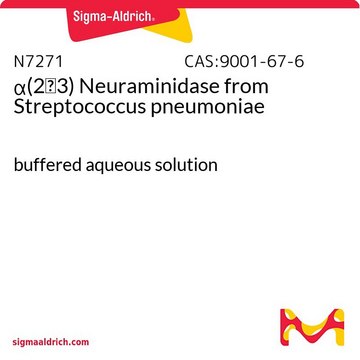N6514
Neuraminidase from Vibrio cholerae
Type II, buffered aqueous solution, 8-24 units/mg protein (Lowry, using NAN-lactose)
Synonym(s):
Acyl-neuraminyl Hydrolase, Receptor-destroying enzyme, Sialidase
About This Item
Recommended Products
biological source
Vibrio cholerae
Quality Level
type
Type II
form
buffered aqueous solution
specific activity
8-24 units/mg protein (Lowry, using NAN-lactose)
foreign activity
Protease and NAN-aldolase, present
storage temp.
2-8°C
Looking for similar products? Visit Product Comparison Guide
General description
Application
Quality
Unit Definition
Physical form
Preparation Note
Signal Word
Danger
Hazard Statements
Precautionary Statements
Hazard Classifications
Resp. Sens. 1
Storage Class Code
10 - Combustible liquids
WGK
WGK 1
Flash Point(F)
Not applicable
Flash Point(C)
Not applicable
Personal Protective Equipment
Regulatory Listings
Regulatory Listings are mainly provided for chemical products. Only limited information can be provided here for non-chemical products. No entry means none of the components are listed. It is the user’s obligation to ensure the safe and legal use of the product.
JAN Code
N6514-1UN-PW:
N6514-BULK:
N6514-.5UN:
N6514-1UN:
N6514-VAR:
Certificates of Analysis (COA)
Search for Certificates of Analysis (COA) by entering the products Lot/Batch Number. Lot and Batch Numbers can be found on a product’s label following the words ‘Lot’ or ‘Batch’.
Already Own This Product?
Find documentation for the products that you have recently purchased in the Document Library.
Protocols
Our team of scientists has experience in all areas of research including Life Science, Material Science, Chemical Synthesis, Chromatography, Analytical and many others.
Contact Technical Service






